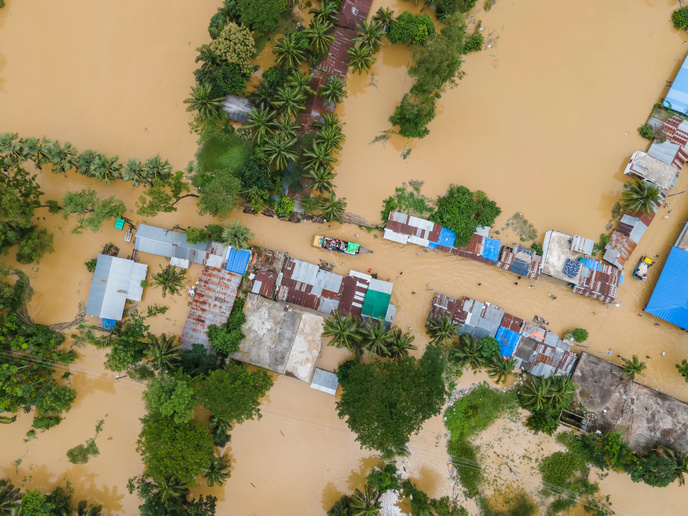Habitable or not: migration decisions in the face of climate change
Since 1990 when the International Panel on Climate Change suggested that “the gravest effects of climate change may be those on human migration”, scientists have rigorously studied this relationship. However, the multiple scales of migration and many interacting socio-economic and environmental factors make it challenging to quantify relationships to support policy making. The EU-funded HABITABLE project brought together 22 partners from 18 countries to study migration and climate change at the level of ‘social-ecological systems’ – complex, adaptive and linked systems of humans and nature. HABITABLE focused on West Africa, East Africa, Southern Africa and South East Asia where migration rates are very high and social-ecological systems are highly vulnerable to climate change impacts. Methods including surveys, interviews and stakeholder dialogues enabled researchers to study households and their perceptions within the broader social-ecological system.
Incentives for migration
HABITABLE found that the primary motivators of migration were economic: individuals and households often migrate in search of better employment opportunities and income sources to improve their lives. These economic drivers were followed by family considerations such as joining relatives or ensuring better care for family members, and educational aspirations – access to quality education was an important motivator. Environmental factors were rarely cited as the main driver for migration decisions. François Gemenne of the University of Liège, project coordinator, summarises: “Socio-economic factors dominate migration decision making; environmental shocks exacerbate existing socio-economic vulnerabilities and drive migration decision making through socio-economic incentives.”
Tipping points for climate-related migration
Statistical analyses of novel longitudinal data supported the presence of social tipping points at the household level for climate-related migration, influenced by intersecting social, economic and cultural factors. Poor, resource-dependent farming households reach their limits faster, leading to migration, while wealthier households can cope longer. People who see themselves as less wealthy are more likely to have no proactive coping strategies and report declining well-being due to environmental degradation. “These findings highlight how migration decisions and ‘tipping points’ depend on local context and individual perceptions of changing risks. Worryingly, community-based coping mechanisms and social resilience overall are purportedly weakening, as climate impacts affect entire communities and make mutual support harder to sustain,” explains Gemenne. Community-level tipping points have not yet emerged but may as climate impacts worsen.
Gendered and social equity dimensions of climate change and migration
Climate change worsens inequalities, which in turn shape migration responses; migration itself can either reduce or increase these inequalities. An empirical scoping review of 120 peer-reviewed articles and new qualitative insights showed that policies must consider gender and equity and be sensitive to migration’s broader impacts to make migration an equaliser. Adaptation is also gendered. For example, in East and West Africa, households where women participate in professional groups, like agricultural cooperatives, adopt more adaptation strategies than those led by men. However, women and youth often lack decision-making power over resources and migration. When working-aged men migrate, it can leave women without income, further decreasing habitability. “As climate risks grow, migration tipping points are emerging at multiple levels of society. Ensuring liveable communities, sustainable livelihoods, and collective well-being requires comprehensive and flexible policies together with multi-level governance that support communities to thrive while adapting to diverse migration patterns and vulnerabilities as conditions near or surpass social tipping points,” summarises Gemenne. For more insight, see HABITABLE’s reports and peer-reviewed articles and its collection of podcasts.
Keywords
HABITABLE, migration, environmental, migration decision making, climate, socio-economic, Africa, climate change, social-ecological systems, adaptation, outmigration, South East Asia







